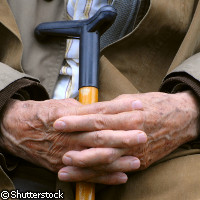Study shows disparities in good health and growing old in EU
European researchers have conducted a study which showed that while life expectancy is increasing in the EU Member States, living longer is not always synonymous with ageing well. Another mystery they unveiled is the age a person will live to in good health. The findings, recently published in The Lancet journal, show that men live on average without health problems up to 67 years of age and women up to 69 years. Past studies showed that the mean life expectancy in the EU was 78 years for men and 83 years for women in 2005. Dr Jean-Marie Robine from the French Institute of Health and Medical Research (INSERM) led the study which was within the scope of the European Health Expectancy Monitoring Unit (EHEMU). Concerned about public health, industrialised countries have expressed their wish to see improvements in the quality of life of older people. Problems like dementia and heart disease increase with age. So while life expectancy has increased over the years, researchers must still determine whether good health influences how many extra years people have to live. For this study, the researchers used an indicator based on the health status of men and women who were over 50 years old. Participants in the study were asked about the difficulties they encounter when dealing with their everyday activities, or the ease with which they carry them out. These activities were monitored over a six-month period and included household tasks (e.g. cooking and cleaning) and going to work. The researchers found that European men live on average without health problems up to 67 years and women up to 69 years. The results also showed strong disparities between the EU Member States. Estonia reported the lowest mean value for men (59 years) and women (61 years), while for Denmark, the numbers were 73 years for men and 74 years for women. In France, the mean average was 68 years for men and 69 years and 8 months for women. The team said their findings were correlated with the gross domestic product (GDP) of the Member States and the average health expenditure on the elderly. Generally, there was a strong correlation between high GDP and expenditure on health with the better health of people over the age of 50. The research also showed that men who were unemployed for 12 months or more, had a low level of education or had only attended a few years of school reported fewer healthy life years. The researchers found even greater disparities when the last 10 Member States to have joined the EU were assessed independently. The majority of these States recorded retirement ages that are either greater than or equal to the average age to which the people can hope to live without health problems. 'Without an improvement in the state of health of older people, it will be difficult to raise the retirement age in certain EU countries,' the researchers said. Besides INSERM, the research team consisted of the Scientific Institute of Public Health (Belgium), the Institute for Demographic Studies (France), the Erasmus Medical Centre Rotterdam (the Netherlands) and the University of Leicester (UK).



